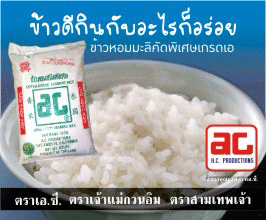LAW CORNER WITH JC 16 พฤศจิกายน 2562
FAMILY-BASED IMMIGRANT VISAS (PART 2)
In Part 1 of this topic, I covered the different categories of family-based immigrant visas, wait periods and priority dates, and requirements regarding age and financial ability of the sponsor. This week’s article, I will cover the filing of the petition (known as the “Petition for Alien Relative”), domicile requirements, and etc.
Filing the Petition for Alien Relative
As I mentioned in Part 1 of this article, you should submit your petition for alien relative as soon as you know you want to immigrate or sponsor your relative. This is especially true for non-immediate relatives because of the potential long wait time. Reminder: there is no wait time for immediate relatives.
Therefore, the first step of obtaining an immigrant visa (or adjust status to that of a lawful permanent resident) is to submit the petition for alien relative (Form I-130) with the U.S. Citizenship and Immigration Services (USCIS). This document is submitted to the department in order to establish a familial relationship between the alien and the petitioner (either a U.S. Citizen or a lawful permanent resident).
It is only after a visa number is available, either right away for immediate relatives, or when the priority date is reached for non-immediate relatives, that you can proceed with the immigrant visa process (or adjustment of status, depending on the circumstances of the relationship and where the alien relative is currently resided)
NOTE: If the alien beneficiary is already in the United States at the time a visa number is available, I recommend concurrent filing of the petition for alien relative with the adjustment of status application. By doing this, we can greatly cut the processing time by several months or more.
Evidence to Submit
The petition for alien relative must be sent with evidence that establishes both, the familial relationship as well as eligibiltity. If you are a U.S. Citizen petitioner, you must send proof that you were either born in the United States, or were naturalized as a U.S. Citizen. If you hold a green card, then you must send proof of that status. Examples include:
For U.S. Citizens --> Birth Certificate. Certificate of Naturalization. U.S. Passport, etc.
For Green Card holders --> Front & Back copy of the permanent resident card ("Green Card")
To show proof of familial relationship, evidence must show either relationship in law (i.e., Marriage certificate), or by birth or adoption, depending on what category of relationship exists between the petitioner and alien relative.
Domicle Requirement for U.S. Petitioner/Sponsor
A U.S. sponsor/petitioner must maintain a principal domicile or residence in the United States. That is, the petitioner must have the intent to remain at the place they live for the foreseeable future. There are some expections, but for the most part, you must live in the U.S. to file the Affidavit of Support.
As always, I am here for you. If you have any questions still left unanswered or you have questions regarding other legal issues, email me at: JC4LAW@HOTMAIL.COM, my office at (818) 846-5639, or my Thai direct line at (818) 505-4921. Also be sure to check us out on the web at: WWW.JC4LAW.COM, and on FACEBOOK at: https://www.facebook.com/ThaiAttorney Be sure to follow (and "like") me for most recent updates in the law!
Disclaimer: The information contained herein have been prepared for informational purposes only and are not to be considered legal advice unless otherwise specified. If you have a specific question regarding your personal case, please contact the Law Offices of Joseph Chitmongran for a full consultation.


































